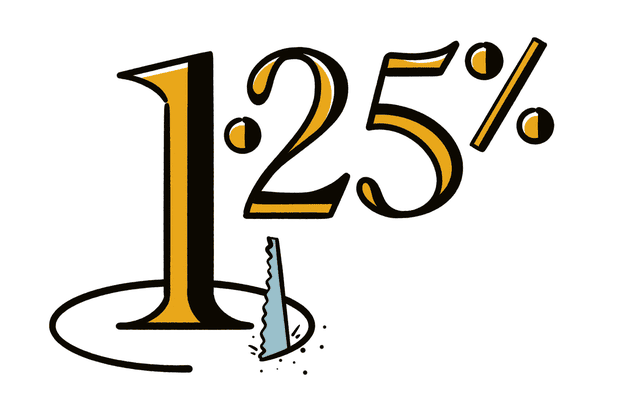
1. Why does inflation happen and what can be done about it?
Vicky Pryce
Chief economic adviser at the Centre for Economics and Business Research and co-author with Andy Ross and Peter Urwin of It’s the Economy, Stupid: Economics for Voters (Biteback)
Inflation is an increase in the price of goods and services in an economy. High inflation means, effectively, that people can buy less with their money. This can happen for a number of reasons: a run on a country’s currency that increases prices of imported goods; a large stimulus to the economy when the system is already at or near full capacity; a strongly unionised labour force exercising its bargaining power; a sudden shortage of labour (following Brexit, for example) or international cost-push factors outside an individual country’s direct control. The latter happened at the time of the two oil crises of the 1970s, and it’s happening again now.
Central banks aim to keep inflation low and steady. When it gets too high, there are various measures they can take, including raising interest rates, reducing money supply, raising taxes to contain spending or implementing a prices policy to keep certain prices at least under control. The French, for example, have forced their energy companies to keep electricity price increases to households to no more than 4% this year, which has kept inflation lower in France than in other European countries.
The problem now is that demand-pull inflation, which we experienced when Covid restrictions were lifted and the economy surged, has turned into cost-push inflation, determined not by wage growth but by the war in Ukraine, which has sent energy and food prices soaring. No central bank by itself can do much about this, except through lowering growth and possibly bringing about a recession – or even depression.
To go deeper For a great historical perspective on inflation read The Great Inflation and Its Aftermath: The Past and Future of American Affluence by Robert J Samuelson (Random House).

2. Why do interest rates matter?
Edward Chancellor
Economic historian and author of The Price of Time: The Real Story of Interest (Allen Lane)
Most economists regard the interest rate solely as a policy lever to be used for controlling inflation. Thus, when inflation falls below the central bank’s target, which in most developed countries is set at 2%, interest rates come down and stay down. Low rates encourage individuals, companies and countries to borrow, and to spend, boosting economic growth. This is what happened over the past decade. But when inflation climbs above the target level, as it has done in recent months, rates are hiked, incentivising saving, rather than spending or borrowing. In theory, as demand for goods falls, so do prices, bringing down inflation.
After the global financial crisis of 2008, central bankers conducted an unprecedented experiment with zero and, in some places, negative interest rates. They successfully prevented a repeat of the Great Depression, when a bout of deflation – a sharp decline in the level of consumer prices – destroyed the US banking system. But among the unintended consequences of this monetary experiment have been a surge in global debt, a proliferation of speculative bubbles, weak household savings and much wasteful investment, accompanied by stagnant economic growth.
Now interest rates are rising and people are finding out that they are less wealthy than they believed they were. Companies and governments are having to pay more to service their debts. Emerging markets that borrowed too much have started to default. The German central banker Hjalmar Schacht got it right when he said in 1927: “Don’t give me a low rate. Give me a true rate, and then I shall know how to keep my house in order.”
To go deeper A History of Interest Rates by Sidney Homer and Richard Sylla is a classic account of lending practices over the course of four millennia.


3. What is the role of the war in Ukraine?
Gillian Tett
US editor-at-large at the Financial Times, and author of Anthro-Vision: How Anthropology Can Explain Business and Life (Cornerstone)
Even before war erupted in Ukraine, western central banks and economic policymakers were caught between a rock and a hard place. Growth seemed likely to slow down, after a post-Covid rebound. But consumer prices were surging on the back of supply chain bottlenecks. The latter created pressure for central banks to raise interest rates, but the former suggested they should wait.
The war in Ukraine has made the policy dilemma far nastier. On the one hand it has sparked sharp increases in energy prices and other commodities, pushing inflation above 8% in America, and 6% in Europe. That increased pressure on central banks to raise rates. At the same time, business and consumer confidence is crumbling in western economies. In short, we face a phenomenon we have not seen for almost 50 years: stagflation, or inflation amid recession, in combination.
Since the financial crisis in 2008, regulators have tried to strengthen the financial system. But many financiers have tried to avoid the new controls by moving funds into less regulated, non-bank corners of finance, such as hedge funds, loan vehicles or the so-called “private” markets, away from public platforms. This has left regulators looking like a plumber in a house where the pipes have been reconfigured, not knowing exactly what will happen to the water pressure until it is turned on.
To go deeper If you want to understand what is really driving the global economic system today, and all the half-hidden financial flows that knit countries together, read Adam Tooze’s Substack.

4. What can the Bank of England do to help?

Rupal Patel and Jack Meaning
Economists at the Bank of England and authors of Can’t We Just Print More Money? Economics in Ten Simple Questions (Cornerstone)
The Bank of England’s role is to ensure that, over time, prices rise as predictably as possible at a rate that is not too fast and not too slow. Specifically, we are tasked with keeping price growth at 2% a year. We have a committee of rate setters whose job it is to make sure this happens and who are democratically accountable to parliament.
At times when prices are going up too fast, meaning that the money in people’s pockets is losing its value too quickly, the Bank’s role is to slow that process and bring inflation back down. To do this it can increase interest rates and slow, or reverse, the rate of money creation (known as quantitative tightening). Ultimately this acts to reduce how much people spend and, subsequently, cools price rises. The trick is to do this just enough to bring price growth (inflation) back down to where we want it, but not so far that it risks prices growing too slowly or falling. That is the narrow tightrope that the Bank’s rate setters are navigating.
The decision to cool the economy in this way is not without consequence. It can impact economic growth and people’s jobs. However, the alternative, a world in which price rises accelerate and become undesirably high on a permanent basis, is much worse over the longer run, particularly for some of the most vulnerable in society. That is why the Bank of England’s clearly defined, independent role is so important.
To go deeper The podcast Economics in Ten has some great episodes on the cost of living, but also central banking and famous economists from history. To understand the economic processes behind the cost of living crisis (and lots of other economics), check out Ha-Joon Chang’s book Economics: The User’s Guide.

5. What could / should the government be doing?
Mariana Mazzucato
Professor at University College London and author of Mission Economy: A Moonshot Guide to Changing Capitalism (Allen Lane)
The UK economy is plagued by lagging productivity, stagnant wages and low economic growth, all of which are now compounded by the cost of living crisis. It is energy prices and corporate profits, not wages, that are driving the current inflationary pressures: corporate profits in the UK have increased by 34% since the onset of the Covid-19 pandemic, 90% of those increases made by the top 25 multinationals.
To address both the current inflation and the longer-term problems, we need to restructure the UK’s overly financialised economy. By simply adding more loans to the system – for example help to buy – the government has made the ratio of private debt to disposable income rebound to what it was at the beginning of the 2008 financial crisis. The current business model is wedded to short-term profits, which has meant that many companies are not investing their profits back into the system but extracting them through practices such as share buybacks, which boost share prices and stock options for executives.
To tackle inflation, the UK government has implemented an energy profits levy, a 25% windfall tax on the profits of UK energy firms for the next 12 months. This is a step in the right direction, but it must go further. Government loans, grants and bailouts should be made only on the condition that profits are reinvested, and that they foster a green transition.
To go deeper The Code of Capital by Katharina Pistor shows that so many of the dysfunctionalities of modern day capitalism have their roots in corporate law and how intellectual property rights are governed. The Ezra Klein Show podcast navigates the world of economics and politics through an incisive, entertaining lens.

6. Will the crisis eventually bring down house prices?
Josh Ryan-Collins
Associate professor in economics and finance at UCL and author of Why Can’t You Afford a Home? (Polity Press)
The latest figures show UK house prices rising…
Read More:Economics made simple: 10 experts on where the cost of living crisis came from, and where it’s heading | Economic policy
2022-07-16 18:51:00
